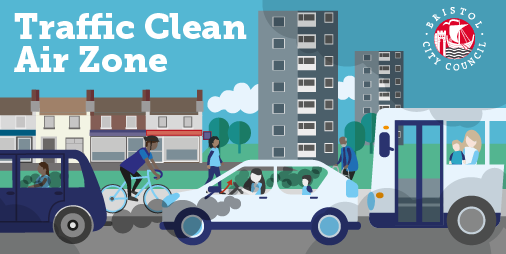
Bristol City Council is consulting on the introduction of a clean air zone (CAZ) to the city.
Two options have been put forward that aim to lower pollution in the shortest possible time. They also aim to minimise any impact for people on lower incomes. The consultation runs for six weeks with the deadline for responses on Monday 12 August 2019.
The proposed options are one element of the wider environmental and clean air plans for Bristol, announced by the Mayor of Bristol on Clean Air Day, which are designed to protect everyone from toxic fumes and ensure the city is playing its part in tackling global climate change.
The two options are:
Option 1: Clean Air Zone (private cars not charged)
Option 1 would also include:
Option 2: Diesel car ban
More detailed information can be found in the council’s impact assessment form (from page 17 onwards)
The council is holding a number of drop-in sessions to give the public the opportunity to discuss the options in more detail:
Hope Chapel
Hope Chapel Hill, Hotwells, BS8 4ND
Monday 22 July, 2.30pm-7.30pm
Marksbury Road Library
Marksbury Road, Bedminster, BS3 5LG
Wednesday 24 July, 2.30pm-7.30pm
Malcolm X Community Centre
141 City Road, St Pauls, BS2 8YH
Tuesday 30 July, 2.30pm-7.30pm
City Hall (Vestibule)
Just off Park Street towards main entrance
Tuesday 6 August, 2.30pm-6.30pm